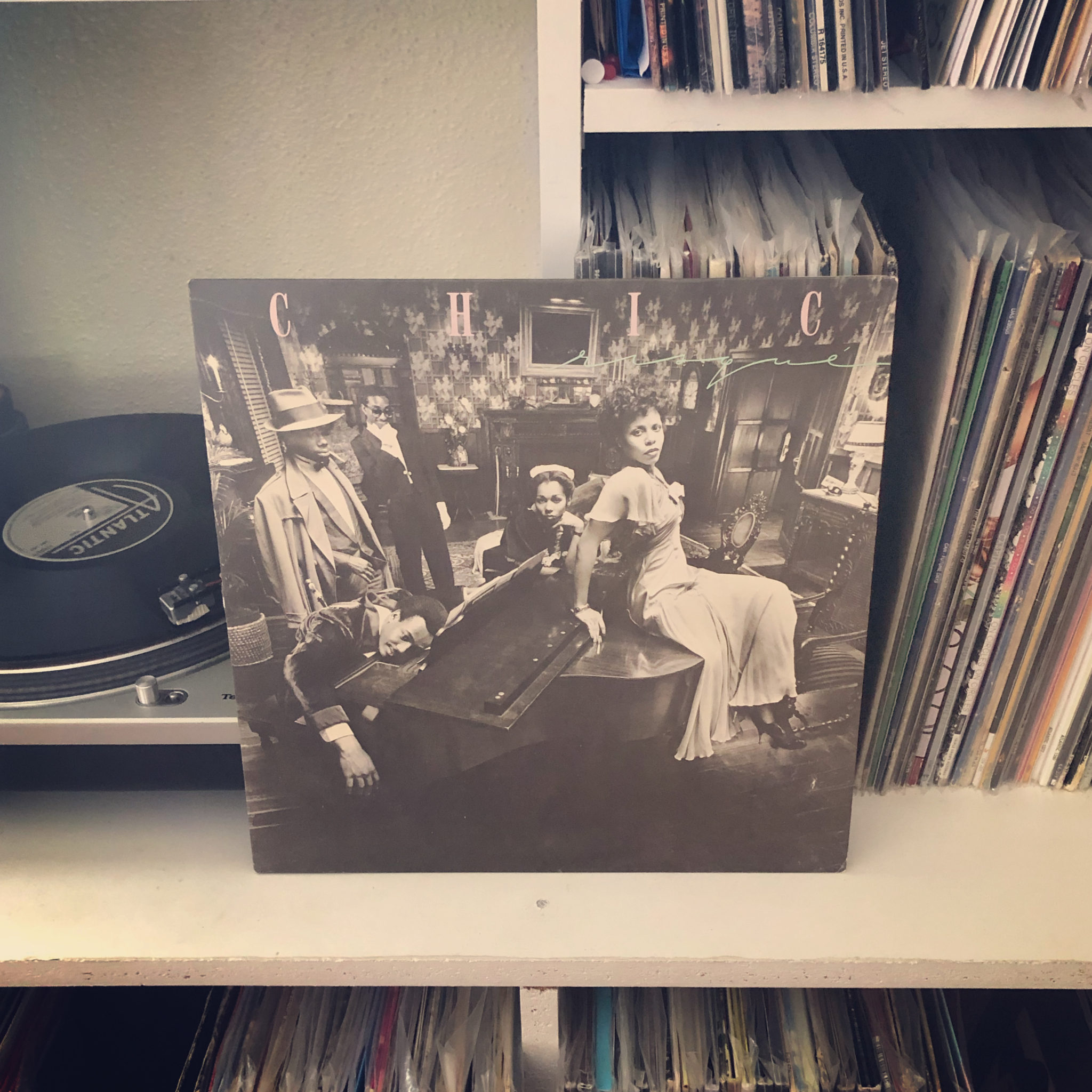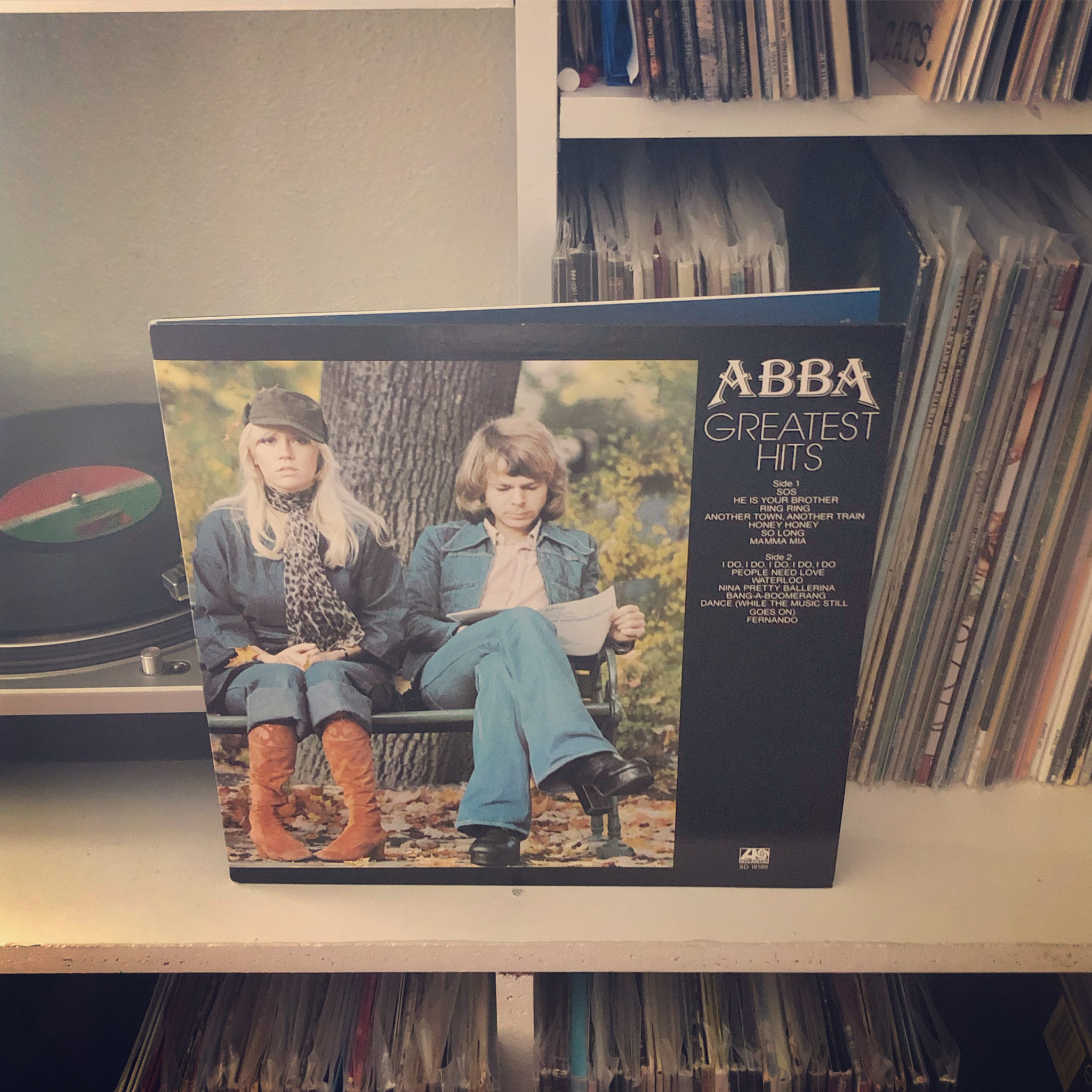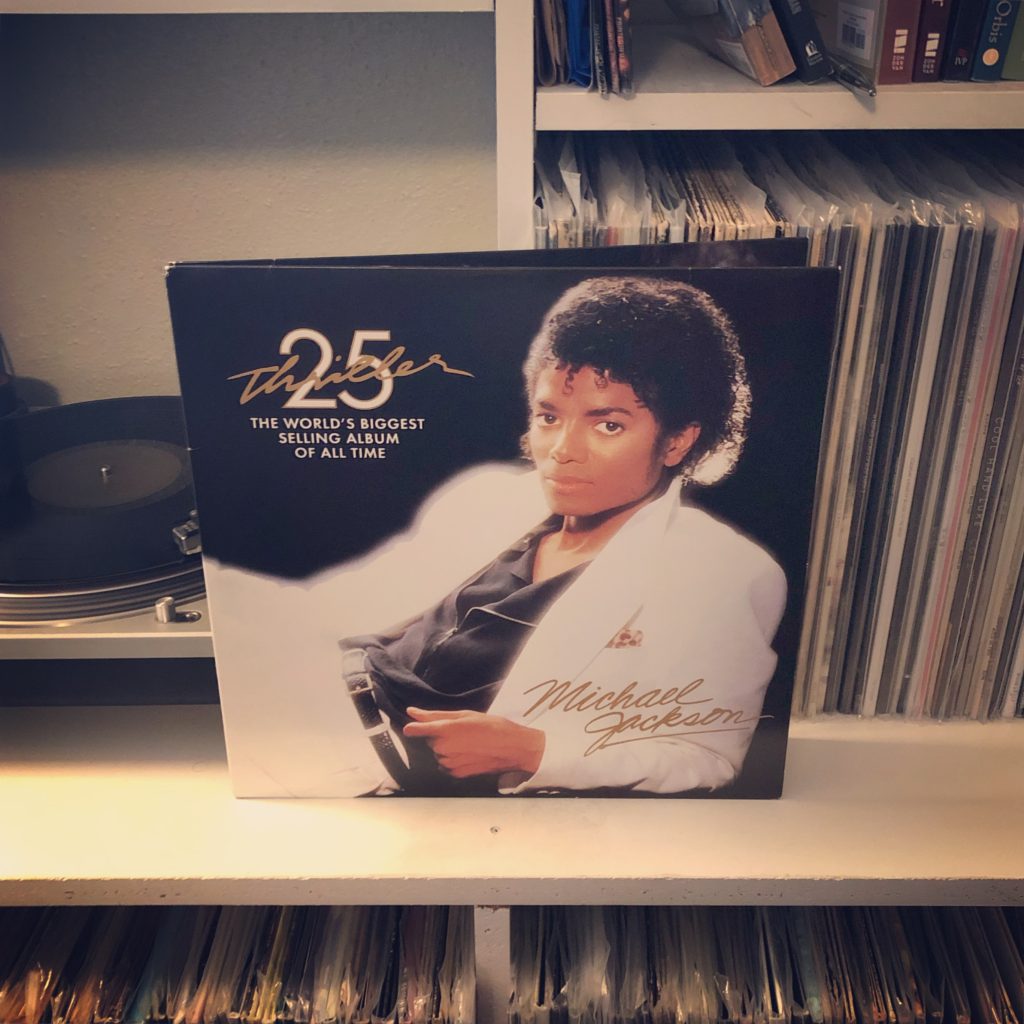I admit, I’ve been a bit of an ABBA hater in the past. While we were dating, when my now wife named them among the bands she liked, I rolled my eyes and teased a bit. I’ve endured plenty of nights helping in the kitchen while she played their Pandora Station as she cooked.
But after visiting the ABBA Museum in Stockholm…well, I’m not sure I’d call myself a fan, but I’ve been far more convinced of their importance in pop music history—and especially in bringing Sweden to the international arts scene (which, as a metal fan, is a happy byproduct). Continue reading
disco
Record #663: CHIC – Risqué (1979)

Q: What do the Sugarhill Gang and Queen have in common?
A: “Good Times” by CHIC, the rollicking eight-minute disco classic that was sampled for “Rapper’s Delight” and that inspired “Another One Bites the Dust.”
But if you think that that single infectious track is the only thing worthwhile on this disc, you’d be sorely mistaken.
Record #654: ABBA Greatest Hits (1975)

Generally, I could give or take ABBA. But, they’re one of my wife’s absolute favorites, so when their first Greatest Hits compilation appeared (sealed!) in a box of records, I had to keep it for her sake.
It is her birthday, after all.
Record #571: Michael Jackson – Thriller (1982)

For a moment, let’s forget about the plastic surgery, the Peter Pan syndrome, the dynastic marriage to Lisa Marie Presley, the allegations against him, and his bizarre persona.
Michael Jackson was the bonafide King of Pop. And no one else even comes close.
And while his studio discography has no shortage of straight bangers, Thriller was the album that cemented that status, and it remains the most consistent and rewarding listen. But hidden deep within the wall-to-wall hit singles is one of the most revolutionary albums for racial justice ever.
Record #246: The Bee Gees – Here at Last…Bee Gees…Live (1977)
Admittedly, I’ve never intentionally listened to the Bee Gees in my life (my brother-in-law gave this to me for Christmas), so when the lady-filled crowd screams wildly, I have to wonder what the big deal is.
But for the most part, the Bee Gees show what the big deal is.
Record #3: Air Supply – Lost In Love (1980)
I got this for free, so don’t judge. And I really don’t want to have to listen to it later, so I’m just getting it over with.
Do you like sappy, overproduced, 80s rock-pop? This is your bag. Just about every track is sub-100 BPMs, features a “Long And Winding Road”-esque orchestra and egregious dramatic production flairs (piano-only codas and multiple key-changes are par for the course), and overuse of the the word “love” (“You keep using that word; I do not think it means what you think it means”).
The sequence of this album obviously wasn’t very well thought out (it opens with three power ballads, followed by a disco-rock cut), and it doesn’t help convince unbelievers (namely, me) that Air Supply was worth the accolades they received upon the release of this record. “Just Another Woman,” the aforementioned disco-rock cut (which funnily enough follows “Every Woman in the World”) is the first song on the record that doesn’t make me want to rip the disc off of the platter and through it in the Goodwill bin. It’s also the only song on side one that breaches the 100 BPM mark, and the only track with any sort of venom to it (or maybe it’s the absence of artificially sweet sentiment).
But sadly, Air Supply’s penchant (or is it their trademark?) for ballads and vocal interplay between two nonblending lead singers is the downfall of this record. The few times they break out of that comfort zone is the only success they manage to wiggle out for themselves, even if the non-ballads are stylistically inconsistent, as if even after four albums, they still hadn’t decided what kind of band they wanted to be (besides balladeers), as they jump from disco-rock to pop country to heartland Americana rock (with the faintest hint of prog).
In summation: this is the kind of record a studio has a band release when they want to make a few bucks, heavy on potential heart-stirring singles with enough “variety” to keep the listener from getting bored with ballads. It’s albums like this that led to the invention of the “greatest hits” album.
That Goodwill bin is sounding like a good idea.